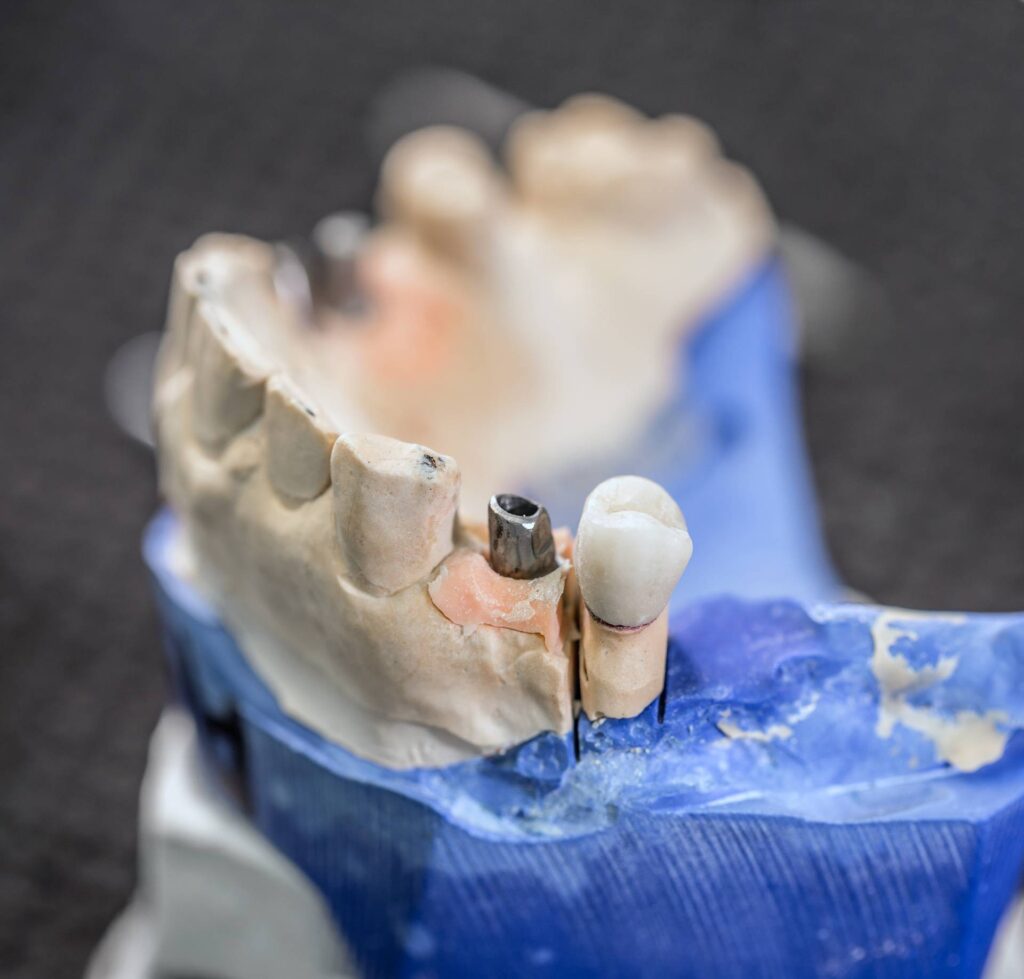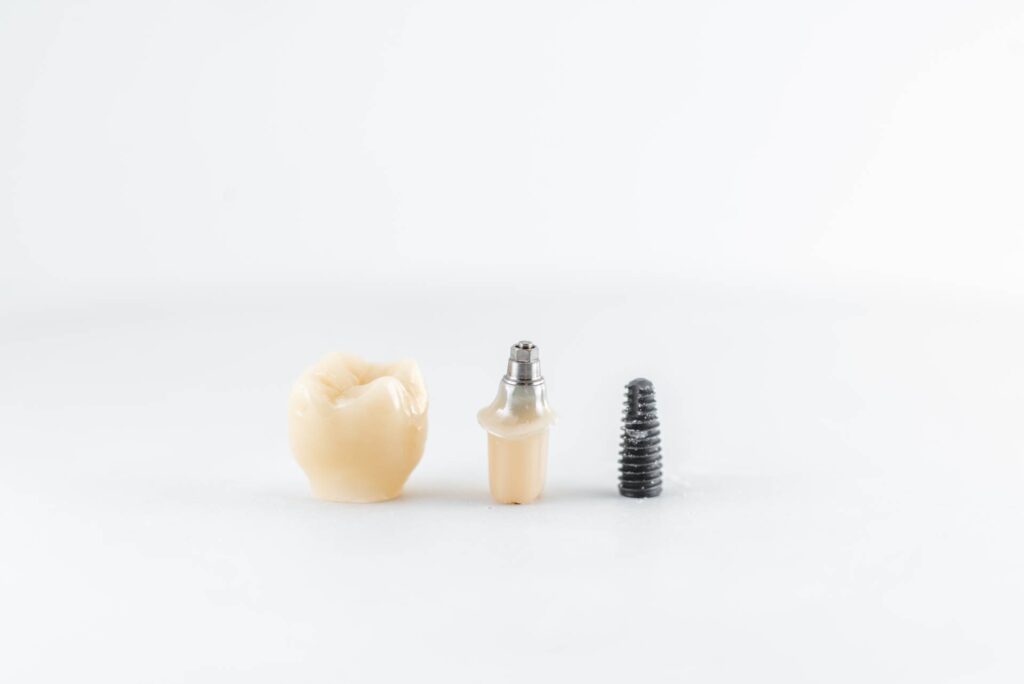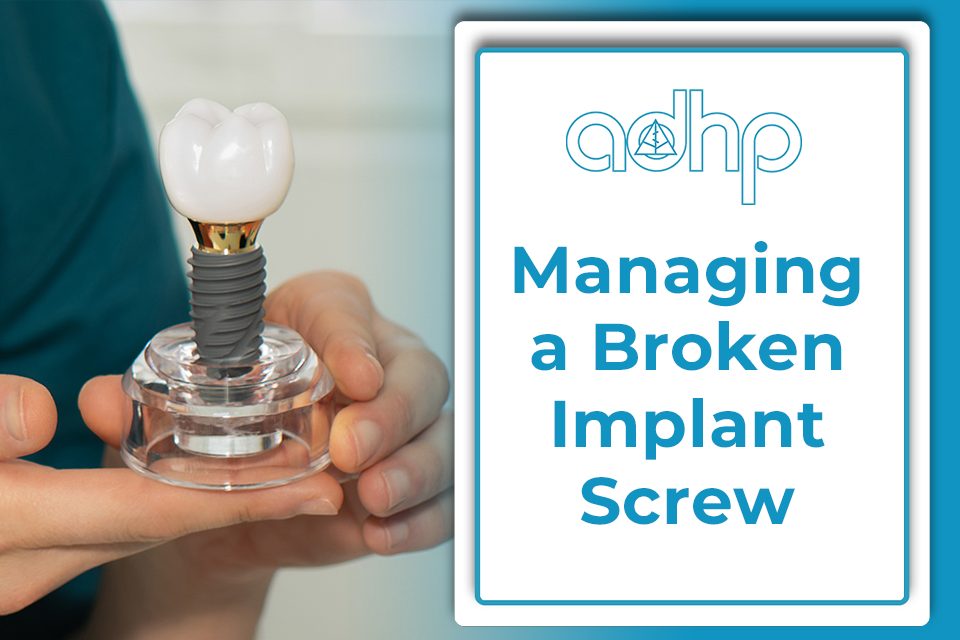Dental implants are widely considered one of the most reliable and long-lasting solutions for replacing missing teeth. However, like any dental procedure, issues can arise, and one of the most common problems patients encounter is a broken implant screw. A broken implant screw can cause discomfort, interfere with the implant’s function, and even risk damaging the surrounding bone and tissues if not addressed promptly.
In this article, we will explore the causes of a broken implant screw, how to manage it, and what preventive measures can be taken to avoid this issue in the future.
What Is a Broken Implant Screw?
A broken implant screw refers to the fracture or breakage of the small screw that holds the implant crown or abutment in place. The implant screw plays a critical role in the structural integrity of the dental implant, connecting the implant post (which is fused to the jawbone) to the visible portion of the implant, such as the crown.
When this screw breaks, the implant can become loose or unstable, compromising its functionality and aesthetic appeal. In some cases, a broken implant screw can cause pain or discomfort, making it difficult for the patient to chew or speak properly.
Causes of a Broken Implant Screw
There are several reasons why a dental implant screw may break, and understanding these causes can help prevent future issues.
1. Overloading the Implant
One of the most common causes of a broken implant screw is excessive force or overloading on the implant. This can occur when the patient exerts too much pressure on the implant, such as through teeth grinding (bruxism), chewing on hard foods, or trauma to the mouth. When the force exceeds the screw’s tolerance, it can result in fractures.
2. Poorly Fitted Implant Components
If the implant components, such as the abutment or crown, are not properly fitted, this can lead to stress on the implant screw. Misaligned or incorrectly sized components place uneven pressure on the screw, making it more susceptible to breaking. Ensuring precise implant placement and proper component fit is essential to avoid this issue.
3. Material Fatigue
Even though implant screws are made from durable materials like titanium, repeated stress over time can cause the material to weaken, leading to fractures. This is known as material fatigue. Just as metal in other mechanical structures can weaken over time, dental implant screws can face the same challenge, especially in cases of prolonged excessive biting force or improper maintenance.
4. Implant Misalignment
If the implant itself is not correctly aligned during placement, it can lead to uneven stress distribution across the screw. This misalignment can cause one side of the screw to bear more pressure than it is designed to handle, increasing the likelihood of breakage. Careful planning and execution during the placement of the implant are critical to ensuring proper alignment.
5. Inadequate Maintenance
Just like natural teeth, dental implants require regular maintenance and check-ups. Failure to follow a proper oral hygiene routine or attend regular dental visits can increase the risk of issues such as screw loosening or breakage. Regular maintenance helps ensure that any problems are detected early, preventing a small issue from becoming a major complication.

Signs That You Have a Broken Implant Screw
If you’re wondering whether your dental implant screw has broken, there are several signs and symptoms to look out for:
- Looseness: If your implant crown feels loose or unstable, this could indicate a broken screw.
- Pain or Discomfort: Some patients experience mild to severe pain around the implant area, especially when chewing.
- Difficulty Chewing: A broken implant screw can make it hard to chew food properly.
- Implant Movement: Visible movement or shifting of the implant crown or abutment is a clear sign of a structural issue.
- Swelling or Redness: In some cases, swelling or redness around the implant area may develop due to irritation from the broken screw.
If you experience any of these symptoms, it’s important to contact your dentist as soon as possible to avoid further complications.
Managing a Broken Implant Screw
Dealing with a broken implant screw can be frustrating, but prompt action is essential to prevent additional damage to the implant or surrounding tissues. Here’s how a broken implant screw is typically managed:
1. Removal of the Broken Screw
The first step in treating a broken implant screw is to remove the damaged screw from the implant. Dentists use specialized tools to carefully extract the broken pieces without damaging the implant post or surrounding bone. This process requires precision, as any further damage could affect the overall stability of the implant.
2. Replacing the Implant Screw
Once the broken screw has been removed, the dentist will assess the condition of the implant and the surrounding tissues. If the implant post is intact and undamaged, a new screw can be inserted to restore the function of the implant. The dentist will also check that the new screw is properly fitted and that there is no excessive force being applied to it.
3. Checking for Implant Complications
In some cases, a broken implant screw may signal underlying issues with the implant itself. The dentist will carefully examine the implant post and surrounding bone to ensure that no further damage has occurred. If complications are found, such as bone loss or implant failure, additional treatments may be necessary.
4. Restoring the Crown or Abutment
Once the new screw is securely in place, the dentist will restore the crown or abutment on top of the implant. This ensures that the patient’s smile and bite are fully functional again. The restoration process may involve reshaping or adjusting the crown to reduce the risk of future overloading.
Preventing a Broken Implant Screw
Prevention is always better than cure, especially when it comes to dental implants. Here are a few steps you can take to reduce the risk of a broken implant screw:
- Regular Check-ups: Schedule regular visits with your dentist to monitor the condition of your implant. Early detection of any issues can prevent more serious problems down the road.
- Proper Oral Hygiene: Maintain a consistent oral hygiene routine, including brushing and flossing around the implant, to keep it clean and healthy.
- Avoid Excessive Force: If you have a habit of grinding your teeth or chewing on hard objects, consider wearing a nightguard to reduce the pressure on your implant.
- Choose the Right Dentist: Ensure your implant procedure is performed by a skilled and experienced dentist who follows proper protocols for implant placement and component fitting.
Broken Implant Screw vs. Loose Implant: What’s the Difference?
It’s essential to distinguish between a broken implant screw and a loose implant, as the treatments for each issue differ. While a broken screw involves the fracture of the screw itself, a loose implant typically refers to the movement of the implant post within the jawbone. Loose implants are often caused by insufficient bone density or poor integration between the implant and bone.
If your implant feels loose, but there’s no visible damage to the crown or abutment, the problem may lie deeper in the implant structure. In such cases, the dentist will assess the condition of the implant post and the surrounding bone to determine the best course of action.

The Importance of Addressing a Broken Implant Screw Early
Ignoring a broken implant screw can lead to more significant problems down the road. If left untreated, a broken screw can damage the implant post, surrounding bone, or soft tissues, making it harder to restore the implant. Additionally, a broken screw may compromise the stability of the crown or abutment, affecting your ability to chew, speak, and smile comfortably.
Early intervention not only prevents further damage but also ensures a quicker and less invasive solution.
Implant Screw Fracture Management
Effective management of implant screw fractures goes beyond immediate clinical intervention and requires a strategic, case-by-case approach. Dentists must evaluate not only the integrity of the implant system but also biomechanical factors such as bite alignment, occlusal forces, and patient habits that may have contributed to the fracture.
Diagnostic tools like periapical radiographs and cone-beam CT scans can offer critical insights into whether the surrounding bone has been affected or if micro-movements in the implant system are present. In complex cases, interdisciplinary collaboration with prosthodontists or oral surgeons may be necessary to ensure long-term stability and optimal restoration outcomes. Tailoring the treatment plan to each patient’s unique anatomy and lifestyle plays a crucial role in reducing recurrence and enhancing the longevity of the implant.
Contact Affordable Dental Health Providers for Expert Care
If you’re dealing with a broken implant screw or want to learn more about maintaining your dental implants, Affordable Dental Health Providers are here to help. With years of experience in implant dentistry, their team offers expert care to ensure that your implants are functioning properly and your smile stays healthy. Contact Affordable Dental Health Providers in Fallbrook today for an evaluation and get your dental implant back on track!





